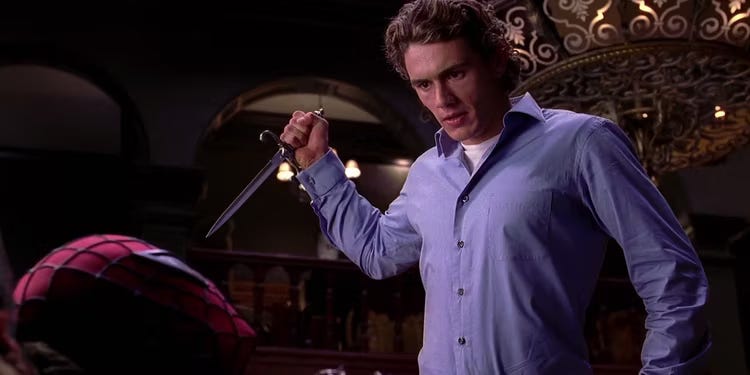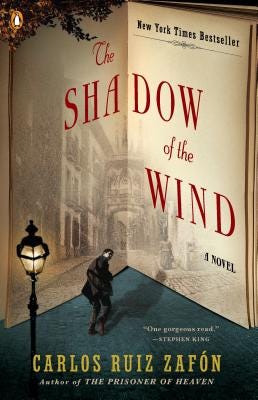Amnesia as a Plot Device: When is it Too Much?
Amnesia, memory loss, and data wipes in literature and media
Anyone who consumes any form of media whether that is books, TV, movies, or video games is familiar with the amnesia trope. Is this plot device just overused, or can it still be used in a way that can leave readers satisfied? Amnesia plays a big role in Fledgling by Octavia E. Butler and during our discussion of the book, I wondered if amnesia and memory loss were just lazy writing — though as discussed the book, we were able to look at it more closely and understand what Butler was trying to do with this subplot. Listen to the full discussion here:
Why Amnesia?
I understand why amnesia became a popular tool when writing about a character. It’s the perfect way to put the character and the reader on the same level of knowledge while also creating a mysterious and intriguing plotline for readers to enjoy. Making the narrator unreliable and blurring the lines between reality, memory, and imagination can create a thrilling experience. It can also be used as comedic relief, like in The Hangover, or the character of Dory in Finding Nemo.
Examples of amnesia and memory loss being used in media and literature can be dated back to the mid-19th century, but it had a moment in Hollywood in the 1940s. You can read this article by David Bordwell where he states:
There’s no disputing that a great many 1940s Hollywood films involve amnesia—over seventy, by one count. But we can find over sixty amnesia-driven releases in the 1910s, about fifty in the 1920s, and at least forty in the 1930s. Amnesia is rare in real life but common in movies.
In the early 2000s, I think there was a resurgence of memory loss used in stories and characters to do something new or different, but did it work?
Y2K Memory Malfunction
This section includes spoilers for Spider Man and Star Wars
When I think of the best use of memory loss in movies, I have one answer: Jason Bourne. Based on the 1980 book trilogy by Robert Ludlum, the hit movies began their franchise in 2002. Many factors created buzz around the movie, including Matt Damon’s popularity, the general trend of action movies at the time, and its high production value. However, I am convinced that it was the plot of the story that really pushed the movie to its ultimate success and changed the future of action movies forever. A highly trained assassin loses all memory of his past, but retains his unparalleled skillset, and is left to fend for himself and put together the pieces of his identity. What could be more gripping than that tagline?
An unexpected example I must include is 50 First Dates because it was peak rom-com material for 2004. Henry, a playboy vet, sets his heart on Lucy, a woman who suffered a tragic accident that caused her to re-live the same day over and over again. While her family has figured out a routine to manage her memory loss, Henry is determined to create a life with Lucy and resolves to win her over again and again. This movie was the perfect blend of comedy, romance, hardship, and drama.
Before the MCU and DC created some of the best superhero movies of all time, the Spider-Man movies featuring Toby McGuire, Kirsten Dunst, Willem Dafoe, and James Franco had me in a chokehold. My brother and I had probably watched the Spider-Man (2002), and Spider-Man 2 (2004) over 20 times each before the third one came out in 2007. Being 13 at the time, I walked away from the final movie in the franchise loving it, but rewatching it as an adult was a completely different experience.
The progression of Harry Osborne’s character in Spider-Man climaxes at the end of the second movie, where he finally finds out the truth about Spider-Man’s identity and seeks to avenge his father’s death. At the beginning of the third movie, this leads to the much-awaited face-off between the frenemies. How does this confrontation end? Harry gets bonked in the head and suffers from partial amnesia where he conveniently forgets that Peter Parker is Spider-Man. All of this was to leave space to introduce Venom as the true villain/anti-hero of the story, and to give Peter false hope of his life going back to normal before reality hits him in the face again. I think there were many other ways that they could have written Harry’s story so it wasn’t so clumsy and cutesy, and in the end, the amnesia aspect of the movie came out to be lazy, boring, and unnecessary.
The final example I will leave you with is about one of the most beloved characters in science fiction history; C-3PO. C-3PO became a huge sensation after the first three movies came out (Episodes IV, V, and VI), and Star Wars fans were adamant about having his character reappear for the newer movies (Episodes I, II, and III). This all worked out great until the end of Episode III, where we all realized that the continuity of having C-3PO witness Anakin’s demise, Padme’s death, and the birth of Leia and Luke doesn’t make sense in the context of his character in Episode IV. C-3PO tends to talk, maybe a little too much, so the writers decided to have his new owner wipe his data. Though I understand the reasoning for his data wipe, I wish the way it was done was more thoughtful and true to the remaining movies.
Does it Work?
When the story’s plot is encompassed by amnesia or memory loss, like in Eternal Sunshine of a Spotless Mind or Hancock, it usually ends up being a compelling story. The journey of rediscovering this character, or unraveling the mystery of their past, is entertaining. This tool is used perfectly in video games such as Final Fantasy, or The Legend of Zelda: Breath of the Wild because as the main character, you feel personally driven to solve the mystery in front of you.
I think where this tool may fall flat is when it is being used to problem-solve something that wasn’t fully thought through, or when changing the trajectory of a character to fit into a story. There are exceptions to this, such as Wolverine’s character in X-Men, which was exciting, tragic, and compelling. Overall, it can be messy and come off as lazy, which is partly because amnesia and memory loss have just been done a few too many times at this point.
— Neha
Recent Posts You Might Have Missed
Up Next
Tomorrow on The Novel Tea Podcast, we will be discussing Shadow of the Wind by Carlos Ruiz Zafón, a book about a young man who finds a book that leads him on a convoluted journey to uncover shocking truths about the past.
Tune into the conversation tomorrow, May 22nd!







